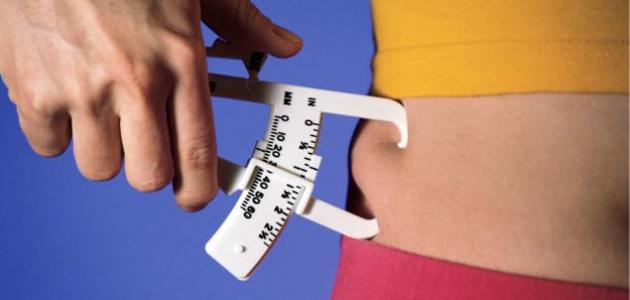Body fat
The body mass of fat is an important criterion for assessing the health status and fitness of humans, and studies have shown that the presence of a large mass of fat in the body increases the risk of chronic diseases such as cardiovascular disease, and diabetes.
Fat enters the formation of most parts of the body. Fat also supplies the body with energy, protects it from temperature fluctuations and the effects of external shocks. It forms a layer of insulation in the wall of cells and enters the formation of important compounds such as hormones, vitamins and yellow juice.
Measurement of body fat percentage
The body fat ratio is measured by dividing the weight of fat on total weight, fat from the basic compounds necessary for human life and the reproductive process, and the fat percentage in the body of the woman is higher than in the body of the man, because of the functions of hormones and the requirements of pregnancy and childbirth. Fat is stored in the fat cells that form the fatty tissue. The level of fat in the body can be measured in several ways, such as: caliper use, bio-electric resistance, underwater body weight measurement, and many other methods.
Methods of measuring body fat percentage
- Underwater Body Weight: The method of estimating the content of the body fat under water is one of the best methods, and its tools are very simple and low cost, and give the real weight of body density in contrast to other methods that give an estimate of the body’s fat content such as body resistance, and the volume of air displacement.
- Nearby IR: The beam of infrared radiation is directed to the muscles of the body, the light is reflected from the muscles and absorbed by the fat cells. The computer shows the amount of absorption of these rays with images, thus helping to estimate the fat content of these cells and calculating the overall structure of the body. This method is safe and easy and does not require much time.
- Estimate body density: Body fat content can be estimated by body density; because fat density is lower than bone and muscle density.
- Biomass Resistance: This method is a low cost method, but it is less accurate in estimating fat than other methods. Electrical resistance is measured by connecting two electrical conductors to the body, delivering a simple electrical current to the body, and the amount of current resistance varies between the fatty and muscular tissues. The muscles are better connected to the electrical current because they contain more water, but the fatty masses are not connected to the current.
